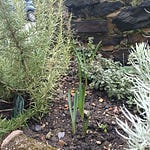You’ve had dozens of rejection emails this year, more last year, and maybe you have had an unbroken track record of rejections for a while. Here are a few thoughts towards reframing rejection.
It’s an emotional topic. When we don’t get selected for an opportunity, we use the word ‘rejection’. For me, the word rejection is a heavy one, conjuring up the noun: ‘reject’, the demarcation of faulty factory-line goods. On the reject pile. No good. And maybe that is the issue: we might feel marked as a reject: imperfect, and flawed when we don’t get selected.
The task then, is to release our unconscious negative associations of a rejection before we get back on the applying horse.
I write this in the wake of my own ‘thank you for applying’, ‘there were many applications’ ‘you have not been shortlisted this time’ email for an opportunity I really, really wanted and felt I was an amazing fit for me. So I write this fresh from my own lived experience, not written at a remote distance.
First: feel the sadness and pain of the project that didn’t happen. It is sad. You dreamed into working with a venue, collaborator, grant, curator, or residency, and that image is there inside of you. Feel the upset of that image needing to dissolve.
And then, rejection reframe: you are not a reject, you submitted an application in good faith and it was not selected, for all sorts of reasons beyond your control. If you ever get the opportunity to be a selector, and sit on the other side of the table, do it. You’ll then realise that many wonderful projects don’t get selected and that’s usually for pragmatic practical reasons. Not getting selected is not a judgment on the quality of your work.
Ask yourself: how many rejections can I handle at once? This is down to you. If you’d feel overwhelmed by ten rejections in short succession, don’t make ten applications in short succession. I learned this lesson a few years ago after sending out multiple applications at once and getting four rejections on the same day, which did not feel good (understatement!). Now, I meter out my applying, to limit rejection bunching.
Consider the time expense: how much time can you give to making applications without feeling that you are constantly working for free and giving your energy away? I know that I can do two applications a month safely, without it tipping my feelings and mindset negatively. If I make more applications than that I feel I’m spending too long in a speculative future. When I have written an application, I get back into some practical art-making to ground into the present reality, the here and now.
Think about the time spent on the application as time for you. It can feel as though you are giving your energy to the organisation you are applying to, and that can be a drain. A reframe: this is time spent on refining your ideas, honing your communication, and developing your conceptual clarity. All of this adds value to you. The time spent writing an application can be an opportunity to go deeper into your practice. If you can’t see a particular opportunity as enabling this time spent on you, perhaps it feels like a stretch to shoe-horn a project into it, then skip this application. There will be others.
If you find yourself stuck in a fear mentality–perhaps as a result of getting the dreaded rejection emails, it can mean making bad faith applications. Applying out of a sense of lack or feeling somehow obligated to apply. Do not make bad faith applications—the ones you resent, take too long, take you away from what you want to do. All these applications do is entrench you in a feeling of embattlement and victimhood. You won’t get that opportunity.
I’m not going to argue that rejection is character-building. There are no positives in rejection. These prompts are towards rejection neutrality, so you can see rejection neither as a comment on your abilities, nor some kind of paying your dues.
Finally, let go the rejections. Let. Them. Go. Release them. Don’t count up how many you’ve received. Don’t hold onto them as a badge of honour. They are just lottery tickets that didn’t come up, that’s all. The full moon is a good time to feel your feelings and then release them. It can be beneficial to work with a mentor if you need to unpack rejection and reconnect with your sense of agency—reach out if you’d like to do this work with me.
Another way to release: I’m collaborating with Ric Stott to offer a one-day retreat, Nurturing the Creative Heart, A Day of Rituals and Meditation to Reconnect with your Purpose, where we’ll address practices of letting go.
I shall follow this post with more thoughts on applying, and also acceptance emails in the next posts.












